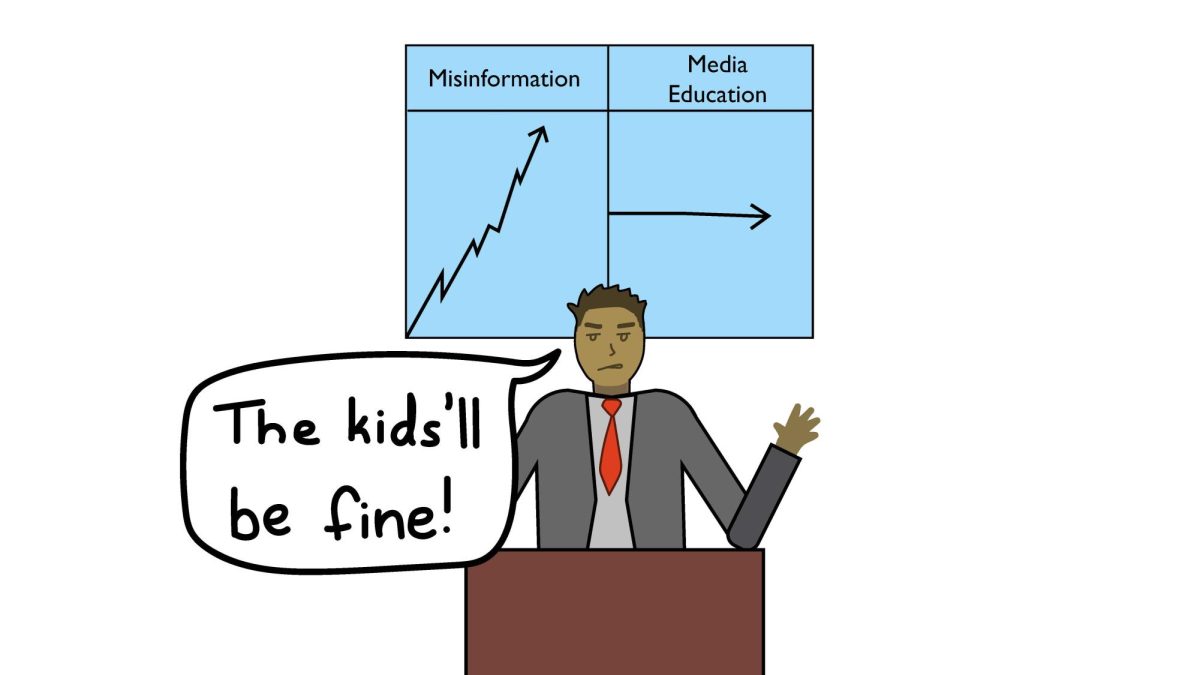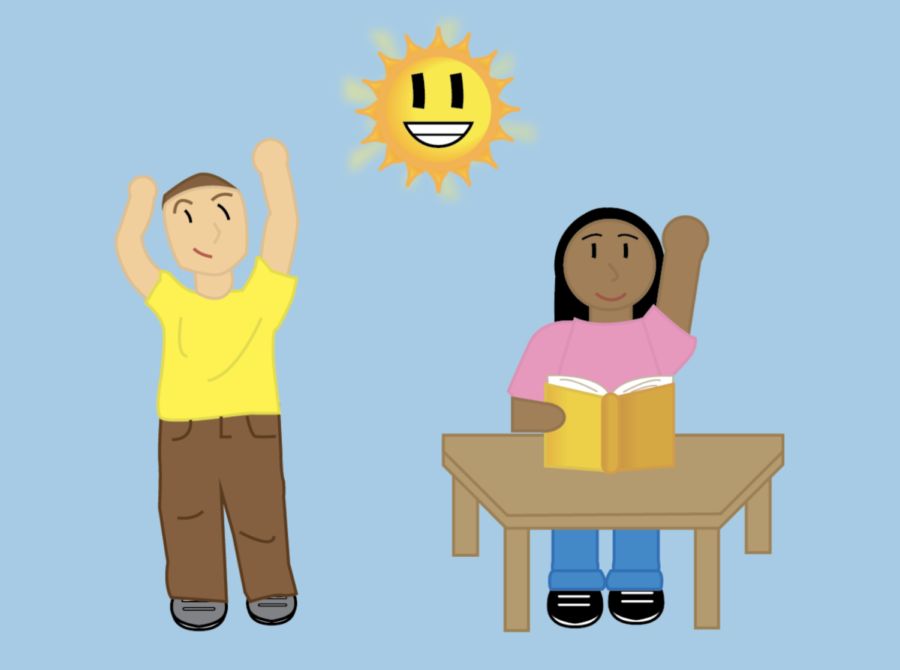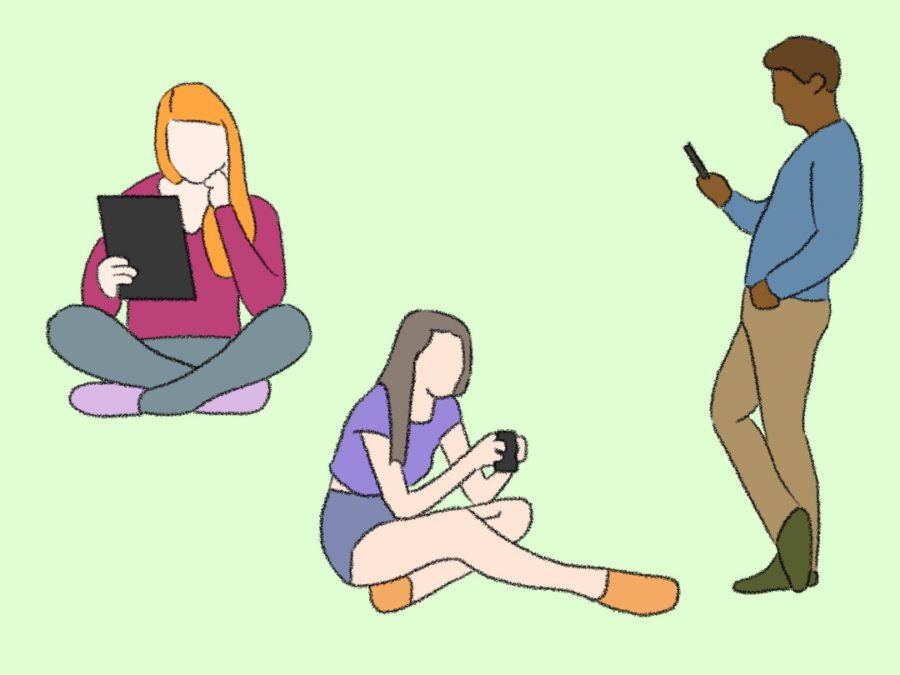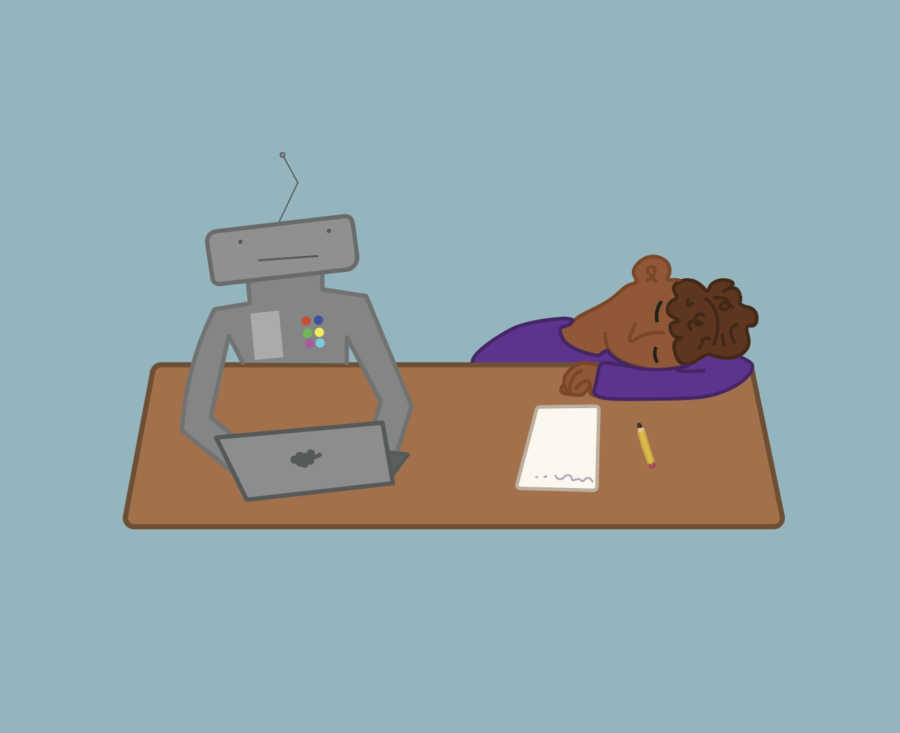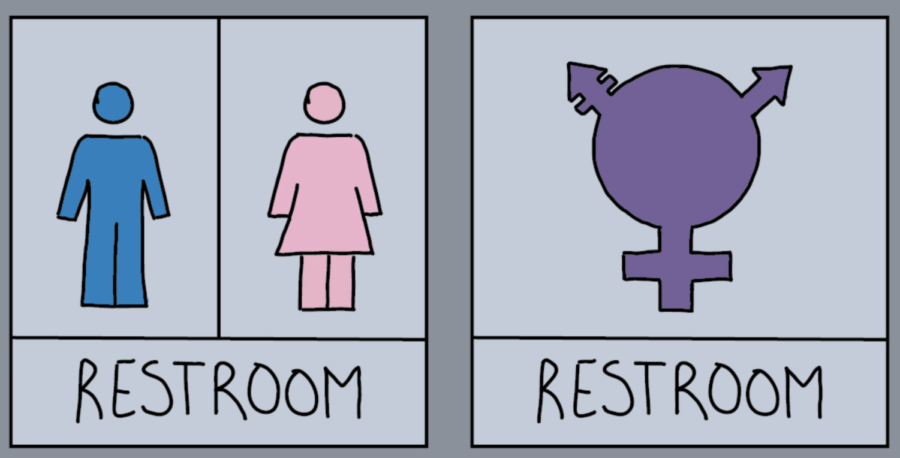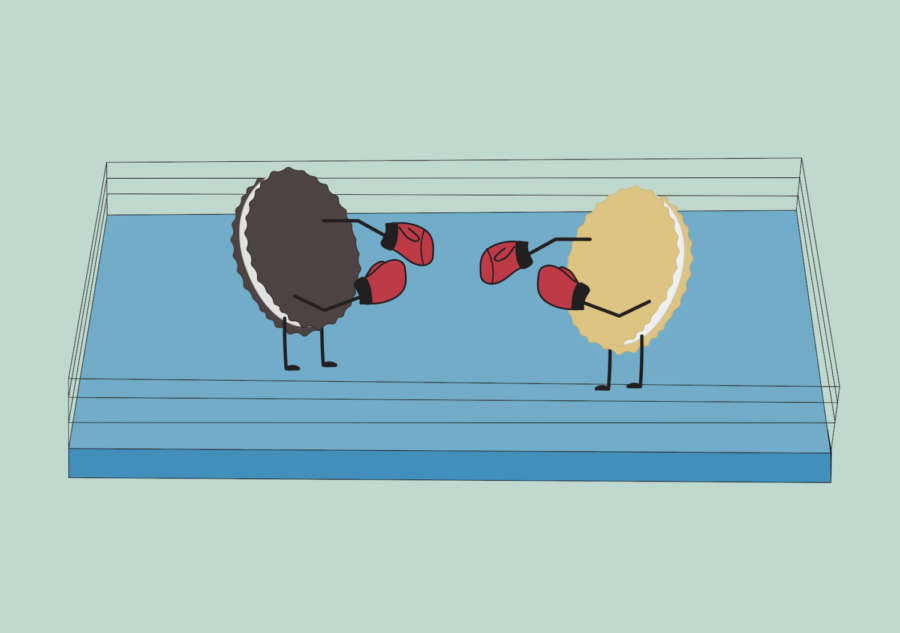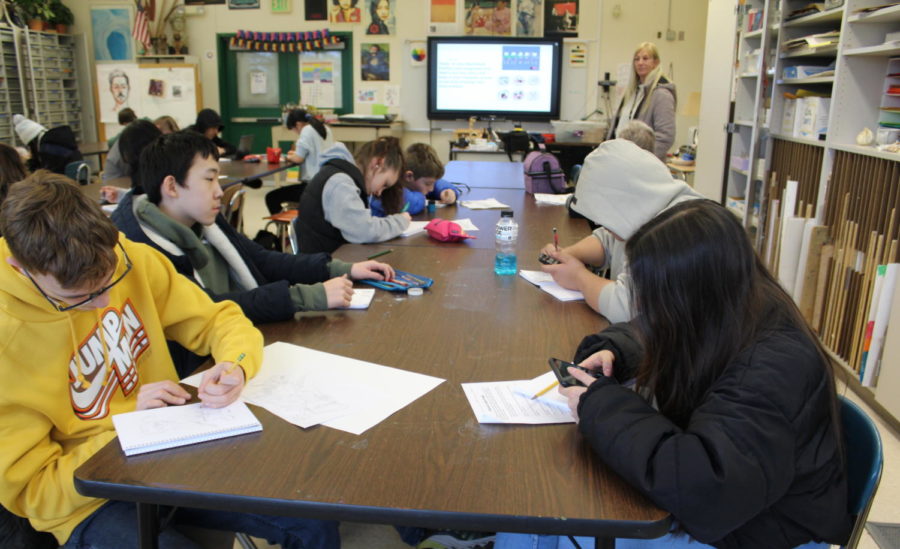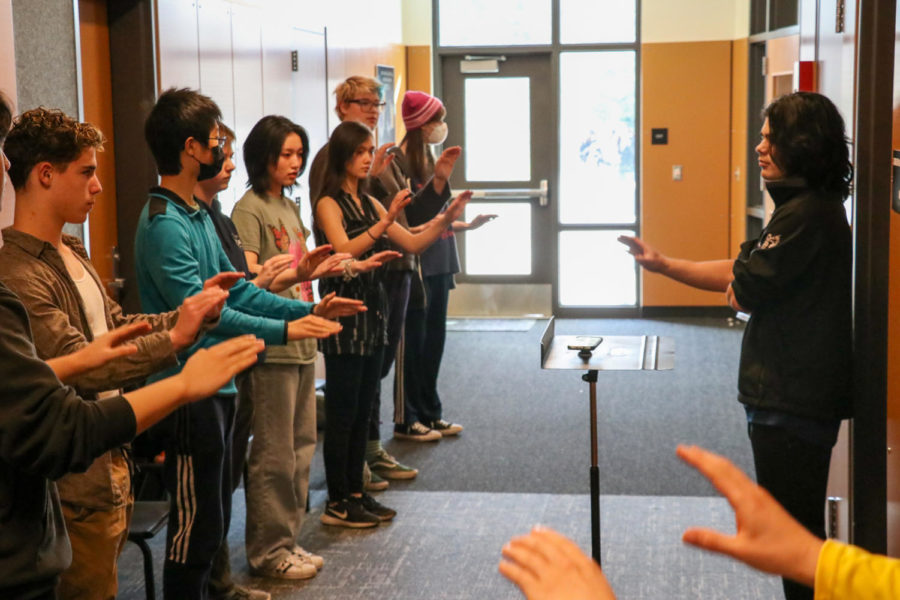Point: phones stay!
Posters of a cell phone yelling ‘Put me away!’ are plastered around the school to aggressively remind students of the new phone policy. The policy states that phones must remain in backpacks except during breaks, lunch or passing periods. A glance at their phone could land a student in detention or Saturday school. Instead of managing distracted students, this policy is creating an environment in which students and teachers feel on edge.
According to the school website’s “Policies and Procedures” section one violation results in after-school detention, a second violation results in two-hour Saturday school and a third violation will result in Saturday school for five hours. This contradicts what most teachers have been saying, which is that one offense results in lunch detention and a student needs to receive three lunch detentions before receiving and after school detention. The school website needs to clarify whether the phone policy has recently changed to eliminate confusion. After all, lunch detention is very different from after-school detention.
The rule is further inconsistent due to the teacher’s vastly different classroom management philosophies. Many teachers have put their own spin on it. Some believe that it’s in each student’s hands to control their own phone use, while others are strict enough to punish you for each offense.
Campus supervisor Ric Calhoun (he/him), said he’s processed 59 lunch detentions as of Sept. 21. Of those, 49.3% were for cell phone violations. However, nine of the 28 instances of detentions assigned for cell phone use came from only three students. Two students were responsible for two each, and one student accounted for five violations. After a third violation is recorded, the student’s name would be sent to their administrator, as lunch detention was clearly not a successful intervention and a greater degree of punishment would be determined. These statistics indicate that phones aren’t a problem for the entire school. Therefore, the entire school shouldn’t suffer its consequences.
Moreover, lunch detentions are shown to increase phone use. Dr. Ruth Payne (she/her), lead lecturer at Leeds University in the U.K., conducted research on middle and high-school-aged students’ attitudes toward punishments. According to her findings, detention is not an effective solution to solving the problem at hand. Solutions that encroach on kids’ time aren’t effective. Her results are corroborated by Inglemoor’s records, where being forced to sit in silence doesn’t seem to change students’ mindsets, as shown by Calhoun’s report.
Supporters of the phone policy argue that it’s essential to students’ learning intake and that the phone is a student’s largest distraction in class. However, students are finding ways to pivot around the phone policy. Some can be found texting, browsing social media and watching YouTube on their non-school-issued computers instead. When students transition into college and the workplace, there will be no cell phone policy. It’s crucial for them to learn how to manage phone dependence themselves before it is too late to fix it.
The overly rigid rules of the phone policy undermine its intentions. Phones are an important learning device: they teach self-discipline and help students connect with their peers. Technology has integrated itself into every aspect of students’ lives. The solution should be a uniform and consistent policy conducive to supporting each student’s success. Students should be able to have their phones in class, and it should be up to each individual how they discipline themselves. School policymakers should realize the fact that cell phones can be an educational tool and teach students restraint instead of fueling creative ways to navigate around school rules. Phones have assimilated into everyday life providing instant access to limitless resources; there is no reason to deny students the empowerment of using technology for good.
Counterpoint: phones away!
In stark contrast to last year, students in class can be found typing up assignments rather than typing on their phones. Most students are no longer scrolling through social media during lessons, which is greatly appreciated by teachers. This seemingly miraculous change is thanks to the new phone policy, an important step towards fulfilling high school education.
According to assistant principal Shawn Rainwater (he/him), the concept of a phone policy has been around since phones became popular. The goal of the policy is to help students learn and focus.
A study published in 2013 in the Journal of Communication Education showed that students who didn’t use their phones wrote down 62% more information, recalled more details from the lecture and tested 1.5 letter grades higher on a multiple choice exam than students who did use their phones. Some teachers, such as Tammy Wright (she/her), are even offering incentives for following the phone policy; she brought in donuts for all her classes after 28 days without a phone violation.
Focusing in class instead of scrolling through Instagram lightens the homework load, and helps students absorb the content. This leaves more time for unwinding, decreases stress and improves test scores. In addition, students are exercising the ability to concentrate for prolonged periods of time, a valuable skill both in and out of school. This will allow them to succeed at anything they want to do, be it college, a job or a specific discipline. Phones disrupt this learning process, at least until students can learn to control their phone use. According to Rainwater, the eventual goal is for students to have enough self-control to regulate their phone use on their own; the phone policy is just an intermediate step to reorient students after the effects of online learning.
Some students argue that the policy is too strict, especially when it comes to listening to music. However, most teachers give students a warning instead of an immediate detention for their first offense, and anything that students prefer to do on their phone can be done during lunch, break or passing period.
If necessary, teachers can give students permission to use their phones for school-related matters in class. Furthermore, many teachers allow their students to listen to music as long as they keep their phones in their backpacks. Some teachers take music requests from the class or have a playlist for them to listen to during independent work time. Others have let students listen to music once they’ve gotten used to a no-phone environment. This policy is not meant to antagonize students, but rather help them reach higher levels of achievement through discipline and focus better.
After two years of online learning with unrestricted phone access, distraction levels have reached an unacceptable level. With the introduction of this policy, it’s easier for students to make the best use of class time. In short, this is a reasonable and much-needed policy that puts students and staff one step closer to a distraction-free learning environment.










